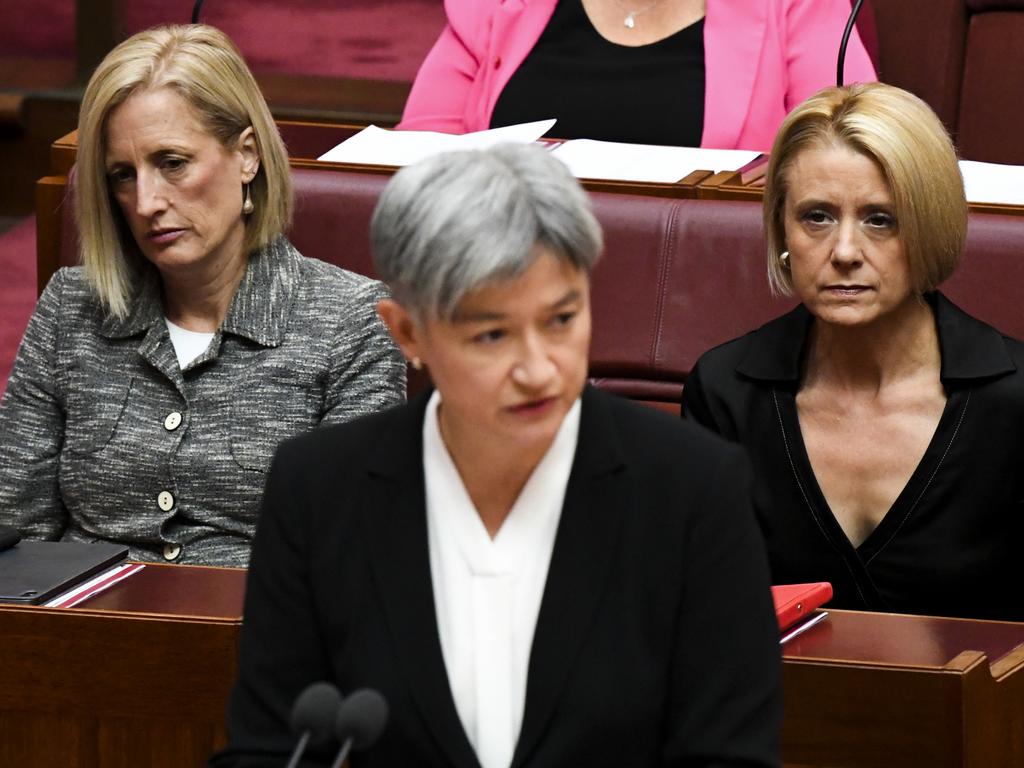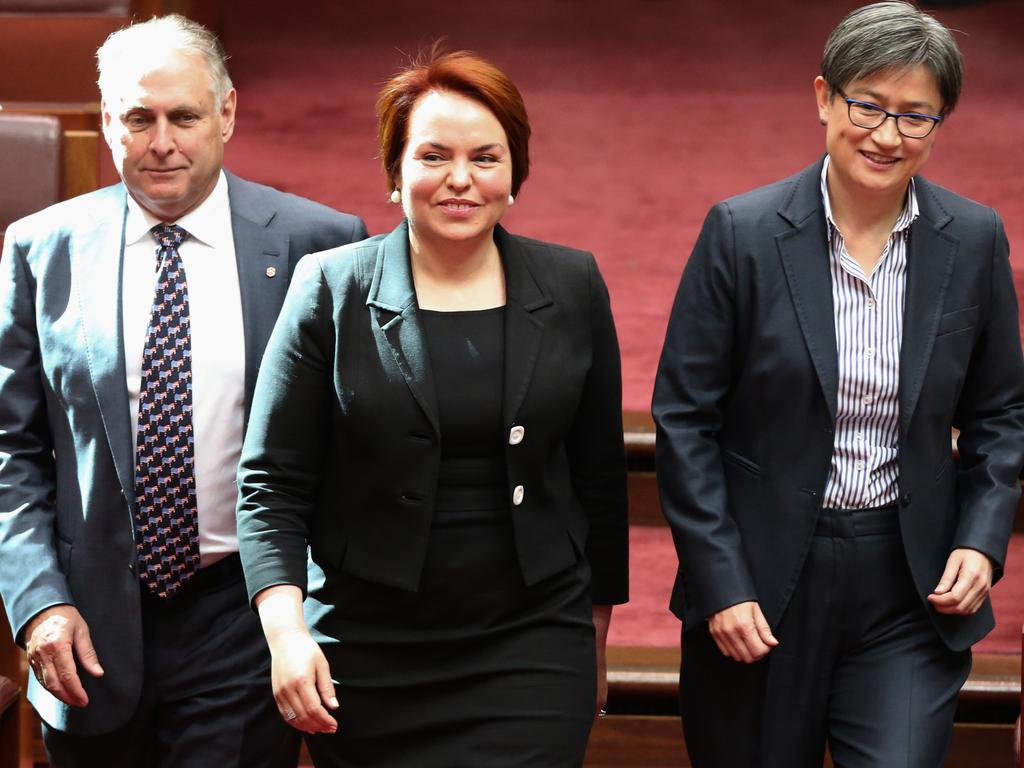
Labor has denied she was bullied. Anthony Albanese refuses to investigate further. The Labor women alleged to have bullied Kitching have denied wrongdoing. They say the dead don’t speak, but Kitching is roaring.
Those who knew the late senator have described her as well-read, witty and vivacious, with an abiding passion for universal human rights. But last year she complained to family and friends about being mistreated by colleagues. They allege that she suffered immense stress.
The Australian reported that Kitching was subjected to a pattern of hostile behaviour by senior ALP figures. Husband Andrew Landeryou has condemned the “cantankerous cabal” that made her life so difficult. The Australian’s Sharri Markson revealed Kitching had endured workplace stress in the months before her death as she was progressively isolated by and removed from roles she cherished.
Early last year, the Opposition Leader removed Kitching from her role as assistant spokeswoman for government accountability. Allegedly, he did not inform her beforehand and she found out about it in the media.
In a June meeting with Senate colleague Kristina Keneally, she was allegedly accused of telling Liberal minister Linda Reynolds Labor was planning to use the Brittany Higgins rape allegations against her. Kitching allegedly denied it and prepared a letter in her own defence. Markson reports that instead of providing the letter to Keneally, Kitching had a meeting with deputy Labor leader Richard Marles to discuss being “frozen out by the Senate team” and dumped from the tactics committee, a group that meets to discuss parliamentary question time strategy. In October, Kitching was removed from the Senate Standing Committee on Finance and Public Administration.
Since the revelations came to light, Labor has deflected attention from the behaviour Kitching allegedly found so difficult during the last year of her life by focusing on its feelings of offence about being called mean girls. It was reportedly the name used by Kitching and some of her supporters after she felt ostracised by senators Katy Gallagher, Keneally and Penny Wong.
I managed harassment and discrimination complaints for a large organisation. If a staff member had complained about being bullied and was removed from so many key roles in less than a year – one allegedly without prior warning – it would warrant further inquiry. Such patterns of behaviour in the workplace can be considered covert or indirect bullying. The Jenkins report on the Independent Review into Commonwealth Parliamentary Workplaces (2021) found: “Sexual harassment was more frequently perpetrated by one harasser, whereas bullying can be perpetrated by multiple bullies. Men were more likely to perpetrate sexual harassment, while women were more likely to bully.”
Covert bullying tends to be indirect, verbal and often involves female cliques who gossip about their target and progressively isolate them. The behaviour is difficult to manage because covert bullies deny intent. If found out, they often will justify their mistreatment of the target by false accusations that can neither be proved nor disproved; the clique’s word against the isolated victim. It is important to know if anyone in Labor’s leadership team tried to resolve Kitching’s concerns, which appeared to be well known.
In his defence, Marles has said she did not make a formal complaint or request he take action. That may be so, but in a workplace that manages bullying well, even an informal discussion where a staff member alleges they have been falsely accused or progressively ostracised would trigger a process to resolve the matter. Was such a process set in motion to respond to Kitching’s concerns?
Former Labor MP Michael Danby has called for an independent inquiry into whether Marles took appropriate action. Speaking to Sky News, Danby said the ALP’s Right faction also caused Kitching undue stress by dangling preselection “over her head”. He described her treatment by Labor as “nothing short of bullying”. Albanese has claimed there was nothing unusual about what happened to Kitching. Does that mean he has removed other Labor MPs from similar roles without prior warning? Were they left to discover it in the media? And if it is business as usual for Labor, perhaps a change is due.
After entering parliament, Kitching tackled corruption, dragged Labor from the dark ages on China, and introduced a bill to broaden the scope of sanctions and empower the targeting of individuals for cyber and human rights abuses. Her efforts were recognised internationally when she won the Sergei Magnitsky Human Rights Award, named after the Russian tax adviser who died in prison after uncovering corruption that implicated Russian officials.
Some have surmised that Kitching’s rising star inspired envy among Labor’s lesser lights. Others believe she was just another victim of its factional wars. The party is divided over who or what is to blame. But the most callous response so far has been to deny she was bullied at all.
Self-declared feminists gunning for Labor to win the election have treated Kitching like a class enemy, suggesting in the press that the independent woman who challenged the party line was asking for it. The real purpose of the tawdry campaign of character assassination is to minimise damage to the Labor brand ahead of the election. To some of the comrades it is the side, not the principle, and the ends justify the means.
It would be better to remember that good girls don’t make history, formidable women do. Kitching was ambitious to be in their league. She deserved better treatment for taking the fight to the world’s worst tyrants.








Mean Girls was an amusing film but grim reality for Kimberley Kitching, the Labor senator who complained about being bullied by colleagues in the months leading to her death.